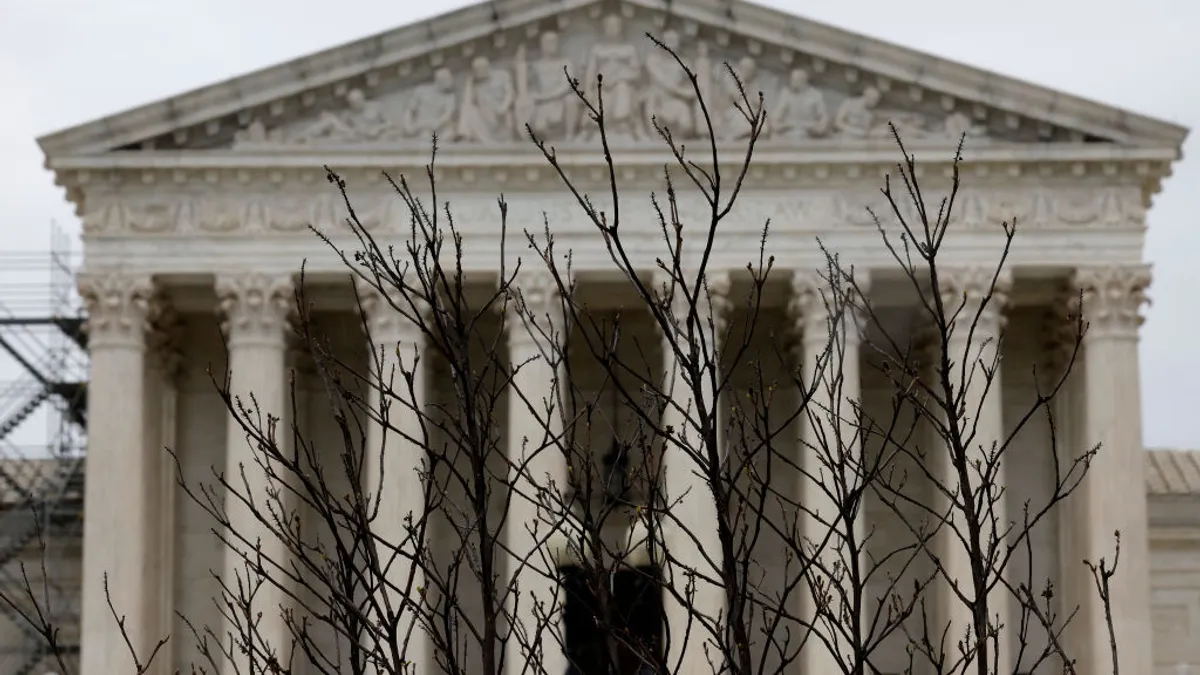For more than 40 years, U.S. Supreme Court precedent has maintained that employers need not bear a “more than a de minimis cost” to accommodate an employee’s sincerely held religious belief or practice at work.
But on Tuesday, oral arguments in the case of a former U.S. Postal Service worker showed that may soon change.
The case, Groff v. DeJoy, concerns allegations that USPS failed to accommodate an ex-employee’s request not to work on Sundays due to his religious beliefs. USPS told the employee he could swap shifts with co-workers to avoid working Sundays, but the employee was not always able to do so and was disciplined for failing to report to work.
Last year, the 3rd U.S. Circuit Court of Appeals held that the employee’s requested accommodation would have created an undue hardship under the Supreme Court’s more-than-a-de-minimis test because it imposed on his co-workers, disrupted the workplace and workflow, and diminished employee morale.
The former employee appealed the case to SCOTUS, asking the high court to decide whether the test it adopted in the 1977 ruling Trans World Airlines, Inc. v. Hardison should be thrown out.
In the test’s place, the court could instead adopt a different test to determine whether a proposed religious accommodation places an undue hardship on an employer, Aaron Streett, counsel for the employee, said Tuesday.
Specifically, Streett told Justice Brett Kavanaugh that his side favors a “significant-difficulty-or-expense” test, in line with what some state governments, like New York, have adopted.
“There’s case law out there. It’s workable,” Streett said.
Groff presents an interesting question for the court in part because the respondent, the U.S. Department of Justice, acknowledged that the federal government has previously asked SCOTUS to revisit its Hardison decision.
In fact, U.S. Solicitor General Elizabeth Prelogar, speaking during Tuesday’s hearing, said that she did not “want to suggest that I have particular attachment” to the court’s “more than de minimis” phrasing, but that “I do have great attachment to the body of law that has developed in reliance on Hardison and using the costs and the accommodations at issue there as one benchmark to try to sort out going forward the types of accommodations that will be required.”
In response to questioning from Justice Neil Gorsuch, Prelogar said that she would be “very happy” if the court were to distinguish that the use of “de minimis” in Hardison “should not be taken literally to mean every dollar above a trifle is immunizing the employers from liability,” which, Prelogar said, would “absolutely [be] a correct statement of the law.” But it would not need to overturn Hardison to do so, she added.
“The thing I'm trying to avoid is this idea that the Court would just throw it all up for grabs and say we have to do this over under some new standard and this case law is irrelevant for helping to guide employers in understanding their obligations and courts in applying the statute in those recurring fact patterns,” Prelogar said.
In the months since the Supreme Court granted review of Groff, a number of faith groups have expressed support for overturning the test articulated in Hardison. But DOJ has called Groff a “poor vehicle” for revisiting that standard, in part because the agency argued that the employee in Groff would not be entitled to relief “under any plausible standard for undue hardship.”
“The justices addressed questions that employers have struggled with in applying an imprecise test under Title VII,” Mariah H. McGrogan, partner at Reed Smith, said in an email to HR Dive. “I think the Court will clarify the existing standard, which hopefully will allow both employers and employees to better understand the scope of their rights and responsibilities under the law.”
Correction: A previous version of this story incorrectly identified the former USPS employee's religion.













